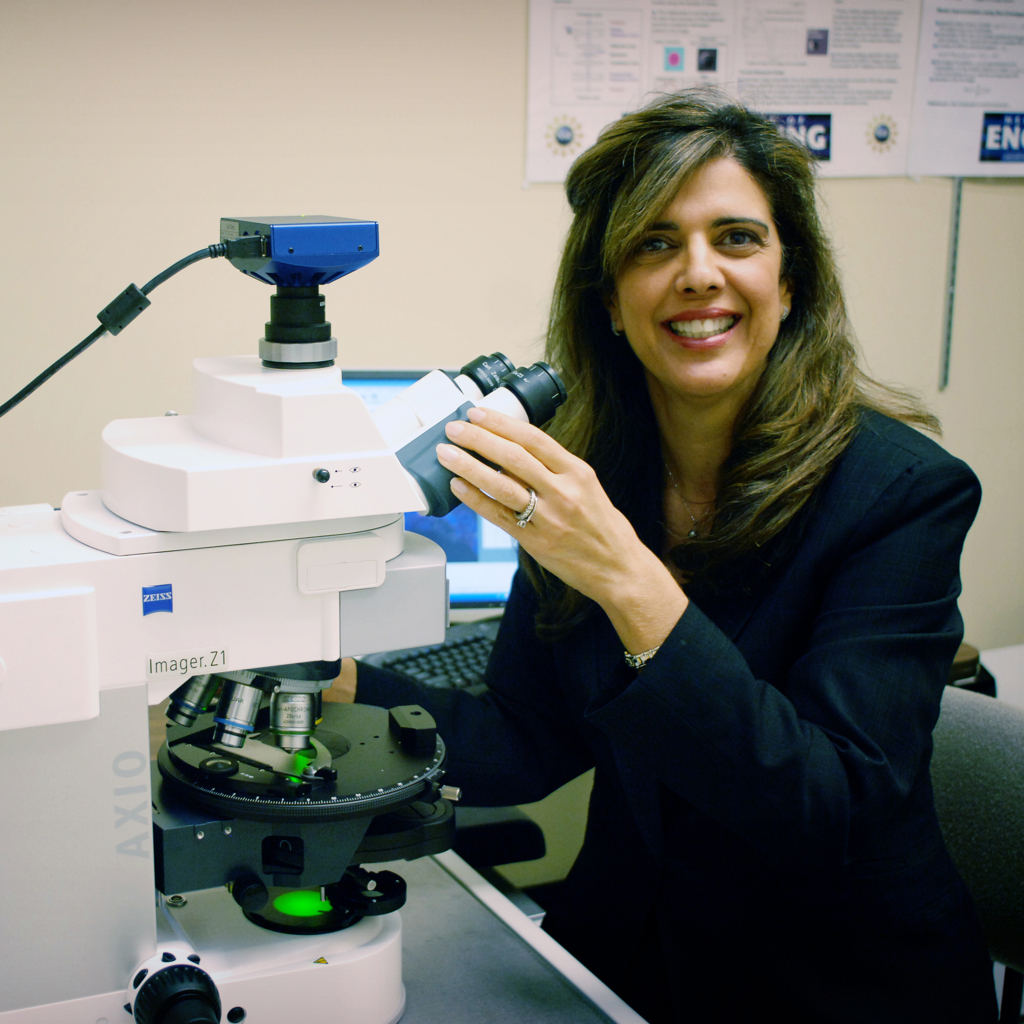Chrysanthe Preza
University of Memphis, USAFor outstanding and sustained research contributions in the field of computational imaging applied to microscopy.

Math and science sparked Chrysanthe Preza’s interest from a young age. Her father, an engineer, supported and believed in her, giving her the confidence to pursue her passions. Growing up on the small island of Cyprus, the lack of opportunities brought about by regional turmoil led Chrysanthe to travel abroad in order to continue her education. Fortunately, she was awarded a Fulbright scholarship that enabled her to come to the United States to study computer science and electrical engineering at Washington University in St. Louis. While there, she had the opportunity to work as a graduate research assistant at the Biomedical Computer Laboratory, where she was first exposed to computational imaging, and later in the Electronic Systems and Signals Research Laboratory where she continued her research as a faculty member. This work sparked a lifelong enthusiasm for computational imaging, and she continues to pursue new directions in this field today.
Along the way, she had the guidance of many terrific mentors who showed her new ways to approach and solve problems. Her mentors were an essential part of her success, and the generosity of those that taught her was crucial. She shares, “My advisor, Donald Snyder, was a great mentor, and his holistic approach on how to formulate these complex, challenging, and interdisciplinary problems…and his methodology in solving them was something that I really benefited from.” As a mentor, Chrysanthe strives to pass on what she has learned along with the understanding that getting the best results takes hard work and a lot of time. Chrysanthe has noticed that “many students desire to become successful quickly, and sometimes they rush to get results.”
Chrysanthe’s research in computational imaging is interdisciplinary, involving mathematics, optics, computer science and biology. She finds that collaborations help drive the research and ensure that the technology developed in her lab is actually used by others. “We need to be very aware and understanding of what the actual biological investigation is. We cannot be agnostic to that. [This] takes collaboration and a willingness to speak the language of the other scientists.” Diversity is an essential component of a successful project; with various backgrounds, fields, and ideas represented, there is an opportunity to find better, more creative solutions. In all that she does, Chrysanthe is an advocate for bringing more diversity into the field. She believes in a proverb: “If you want to go fast, go alone; but if you want to go far, go together.”
Her current research focus is on different microscopy modalities, working to extract useful information by processing the acquired data with new computational approaches and often by altering how data is collected by making changes to the imaging instruments. Her lab works to “design the instrument and the computations at the same time so that you can achieve optimal imaging system performance.” She shares that currently machine learning used in computational imaging shows promising results, but neural networks are still very much a “black box” and require large training data sets. She believes that it is important to use imaging models developed over the years to guide neural networks and make them more interpretable. Physics-guided neural networks are better suited for computational imaging, and her current research is contributing to that effort.
The research process is a wholly enjoyable endeavor for Chrysanthe, who enjoys nearly every aspect of it. Of course, she loves getting results, but she appreciates the journey, saying, “the process is where I thrive.” When beginning her research process, she likes to focus on understanding the problem as completely as possible. Rather than rushing into a proposal, she takes the time to formulate the right questions. She recognizes and embraces the idea that research seldom goes in a straight path. She welcomes deviations from her plan: “If you don’t allow yourself to deviate, you will never discover the unthinkable…that’s where the real discovery happens.”
Photo Credit: University of Memphis
Profile written by Samantha Hornback
